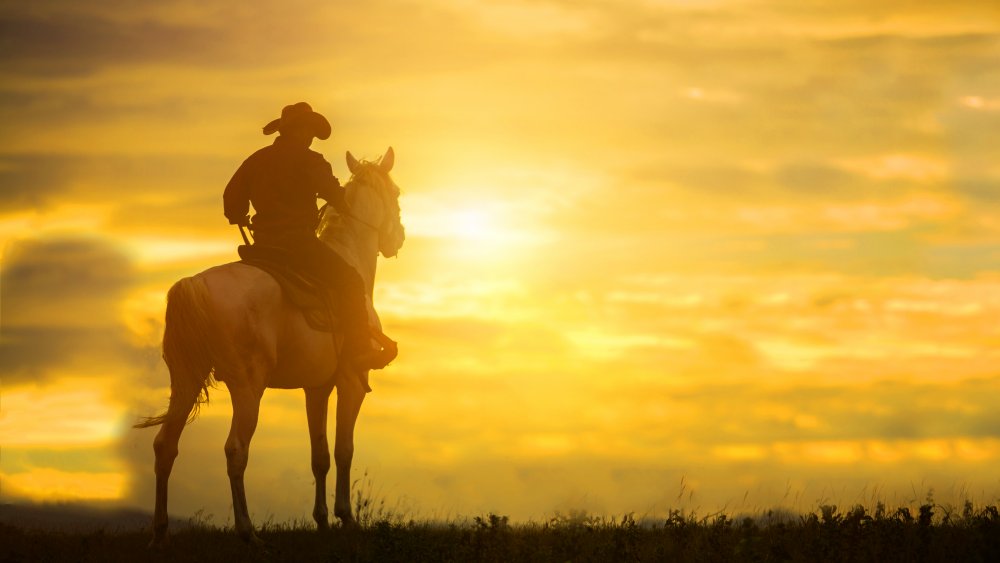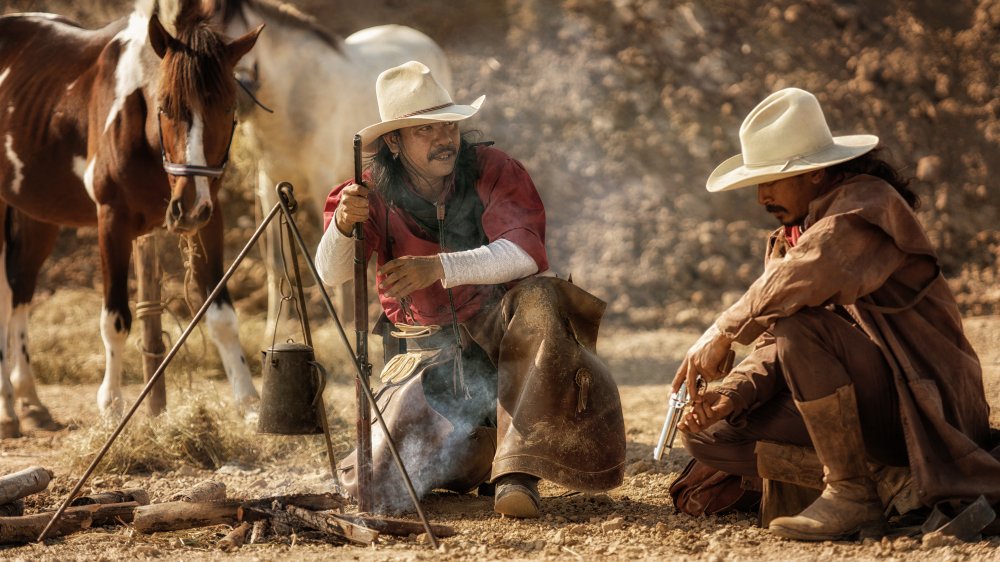How Did Cowboys Bathe Themselves In The Wild West?
Ah, the life of the cowboy. Freedom. The open range. Cooking over a campfire. And those terrific songs. And to think you get paid to ride the wide open spaces.
It's not that easy. The 10-20 young men on trail drives had hard, dirty, dangerous jobs, according to True West Magazine. Just the elements themselves were an issue: storms could turn an otherwise placid river crossing into a maelstrom. Cattle themselves spooked and stampeded, sometimes for no discernible reason, and sometimes at night, requiring riding at a dead run in the dark, trying to get the herd to circle and calm down before lives and livestock were lost. Feisty longhorn cattle, irascible horses, sickness with no doctors; medical care was provided by an amateur you hoped had wisdom and experience, like the camp cook ... it all kept the hands busy, from the time they finished breakfast until they crawled, exhausted, into their bedrolls at night, resting, that is, until they pulled their shift riding around the sleeping herd.
The work lasted from morning until night. Even during a scheduled meal break, a hand could be called back into the saddle at a moment's notice to help avert a crisis of cow or climate. Cowboys worked constantly, keeping an eye on the herd, rounding up the cows who had wandered off, trying to avert catastrophes or theft. It was two months of relentless activity with narrow moments for meals and sleep.
Nary a bed-and-breakfast in sight
And so the short answer is — they didn't bathe. Certainly not regularly. For one thing, they didn't have time. On the other hand, everybody else was covered in dirt, dust, sweat, and manure, too, so perhaps they all got used to it. Except for the rinse during a water crossing, cowboys kept working, night and day, for the two months it took to deliver a herd to market.
Ah, but then — once the drive was over, there was time for things like tooth brushing and mustache curling. And other things, too. Per Marshall Trimble, Arizona's official historian, the end of the trail was a time of celebration. The cattle were sold, the crew was paid, and it was time to relax. Most trailhead towns — for instance, Dodge City — worked very hard to provide opportunities to do just that. Usually the outfit provided the horses, but a cowboy would buy his own saddle, clothes, and other gear. Once in town, with money to spend, the cowboy could pay to get a real bath, and a shave, and new clothes, from the skin up — starting with long underwear, and out from there. A good meal, sitting at a table; a drink or two or more; and entertainment, both professionally personal and personally professional, awaited, including music, dancing, and gambling. Most cowboys grabbed the chance to get cleaned up, and some got cleaned out. And then it was on to the next. Head 'em up and move 'em out.

